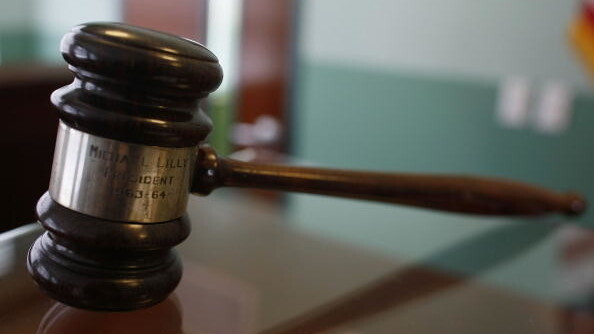
Continuing with Uber’s recent legal woes, Attorney Gary Oswald, who represents San Francisco cab drivers, has filed a class-action lawsuit against the transportation startup due to unfair business competition and for violating California Statutory and city regulatory mandates. Updated with statement from Uber below.
This news is especially troubling, as Uber is now facing legal trouble on its home turf. According to Oswald:
Uber is brazenly violating this statutory scheme without even bothering to offer a pretext for their overtly illegal actions just as they have in New York City, Chicago and elsewhere. By ignoring the law, Uber is putting at risk the livelihoods of hardworking men and women who drive safely and follow the rules.
Behind the lawsuit
The basis of this lawsuit is that Uber’s drivers aren’t licensed as a limousine service or a taxi company. Oswald claims that by partnering with “unauthorized and unpermitted drivers” enables it to “unlawfully compete and take fares from law-abiding taxicab drivers.” It alleges that Uber acted to cover up its true nature in order to avoid all regulation governing taxicab companies and is apparently “intentionally interfering with the drivers’ relationship with the public through their illegal acts.”
Also at the center of this lawsuit is the unauthorized rates and what Oswald and the plaintiffs claim are illegal metering devices. According to the complaint, because consumers cannot pay by cash, this is in violation of San Francisco code. Furthermore, because the fares are measured through the Uber app, which “utilizes GPS enabled iphones [sic] in Black Cars or gypsy cars to determine distance and fares”, it violates SF code because the GPS devices are illegal meters for taxi service. This is the same argument that the company faced when Massachusetts regulators ordered it to cease and desist.
The company is already facing an investigation by the California Public Utilities Commission and the San Francisco Municipal Transportation Agency over its operations and have been issued cease-and-desist orders.
In San Francisco, riders can choose to get picked up through one of the service’s many options, including its traditional black car service, an SUV, by a hybrid (UberX), or even through Uber Taxi — which interestingly enough, is not a private cab, but rather a normal one that just so happens to use the Uber platform.
How does the lawsuit define a taxi company?
So why does Oswald and the plaintiffs think Uber is a “taxicab company”? According to the complaint, because Uber receives requests for taxi service from a customer, transmits (dispatches) the request for cab service to an independent partner in a Black Car that has entered into a service and revenue agreement with the company, and that the driver renders transportation services, that makes it a cab service.
The lawsuit says that the plaintiffs have “suffered unproductive taxi lease expenses, increased taxi fuel expenditures, and other related out-of-pocket costs” as a result of Uber. They are seeking to stop the company from operating in the city as well as an undisclosed award of damages.
Uber’s been here before
Uber isn’t a stranger when it comes to legal challenges to its service. From the infamous Uber Amendment being considered in Washington, DC to facing hostile crowds in Boston, Chicago, and in New York, the company has still remained focused on what founder, Travis Kalanick, says is industry corruption and that the company would continue to fight the good fight.
During his talk at Y Combinator’s Startup School last month, Kalanick said that he’s focused on building an “urban logistics fabric” and that the older the industry being disrupted, the more it is protected by government or corruption, or both.
So far, the company has raised nearly $50 million in funding from many of the tech industry’s prominent investors, including First Round Capital, Lowercase Capital, Jason Calacanis, Mashery’s Oren Michels, Shawn Fanning, Naval Ravikant, Benchmark Capital, Amazon’s Jeff Bezos, Goldman Sachs, CrunchFund, Gary Vaynerchuk, and Menlo Ventures.
Update: John B. Quinn, Quinn Emanuel Urquhart & Sullivan, Counsel for Uber issued the following statement to The Next Web:
“In just over two years, Uber has provided a convenient, popular transportation option to tens of thousands of San Franciscans and a new source of income to thousands of drivers and their families. Uber complies with all laws and regulations applicable to its business. Any claim to the contrary is baseless and motivated by those who seek to deprive the public of this safe and convenient transportation option. Uber would rather compete for business on the streets of San Francisco than in the courtroom, but Uber will defend these claims in court and is confident of the outcome.”
This complaint was filed earlier this month in the Superior Court of California in San Francisco and is Case Action number CGC-12-526017.
Taxi Cab Lawsuit Against Uber in San Francisco
Photo credit: Joe Raedle/Getty Images
Get the TNW newsletter
Get the most important tech news in your inbox each week.




